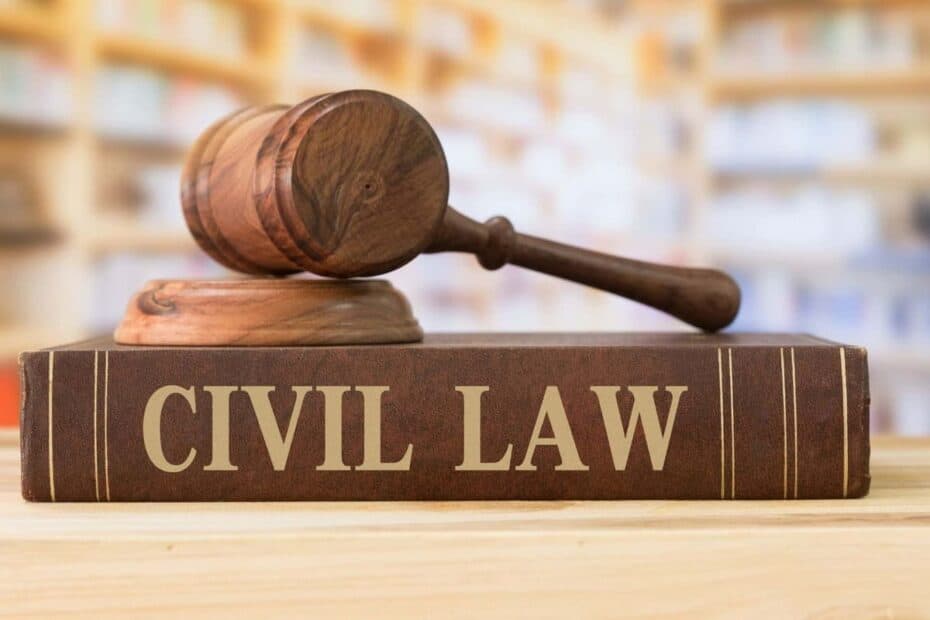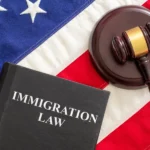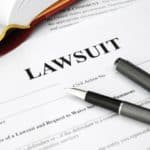Do you want to become a civil litigation lawyer? Well, it’s a pretty good decision. Civil litigation occurs when two entities (individuals or organizations) disagree. One party wants monetary compensation for the damage or loss, but the other party does not agree to it, and there’s a dispute. If they fail to reach a settlement on their own, they will have to hire a civil litigation lawyer.
Now, you might question what roles they play in resolving civil litigation cases. But before that, let’s get an understanding of the types of civil litigation cases.
Common Cases of Civil Litigation
1. Breach of Contract:
- Employment Contracts: The most prevalent matters that involve civil litigation between employers and employees include wrongful termination, unpaid wages, discriminatory practices, and violation of non-compete clauses. When there are cases of dispute relating to employment contracts, the individuals may file a lawsuit through civil court with the aim of enforcing their rights and technical awards.
- Commercial Contracts: Issues such as undelivered goods, delivery date missed, and defective services; not paying the bills.
- Real Estate Contracts: Violation of purchase contracts, property condition misrepresentation, landlord-tenant disagreements.
- Construction Contracts: Construction disputes involving delay, defective workmanship, cost overruns, and deviation from building specifications.
2. Motor Vehicle Accidents:
- Motor Vehicle Accidents: Personal injury claims typically arise from car accidents, pedestrian accidents, bicycle accidents, and public transit. In such instances, victims who suffer injuries resulting from negligence or recklessness on the part of another party might sue for damages such as medical expenses, loss of wages incurred, and pain and suffering.
- Slip and Fall Accidents: Personal injury law includes injuries acquired through slip and fall accidents on other people’s property due to negligence in maintaining safe conditions. Property owners are required by law to make their premises safe for anyone in there, and if they fail and persons slip and fall in the place, then the owner will be liable.
- Product Liability: Product Liability refers to injuries caused by faulty products such as defective machinery, poisonous foods, or drugs. Manufacturers, distributors, and sellers of defective products are sometimes sued for injuries caused by their products, while those who have been injured as a result may attempt to sue in civil litigation.
- Medical Malpractice: When healthcare professionals give a service other than what they are supposed to or harm their patient’s health, this is medical malpractice. As a result of medical negligence, surgical errors, misdiagnosis or medication errors, the injured patients may file civil litigation to recover damages.
3. Property Disputes:
- Boundary Disputes: Property boundary disputes.
- Real Estate Closings: Title defects, fraudulent transactions, and breach of closing agreements.
- Mortgage Foreclosures: Conflicts arising between borrower and lender on defaulted mortgages.
- Trespass: Trespass is also used when someone intrudes on another person’s property without permission. The trespass cases include allegations of property damages, nuisance or interference with the use and enjoyment of such property. In the event of trespassing, property owners can get civil action relief through injunction or damages and other forms of remedies.
4. Debt Recovery:
- Unpaid Invoices: Unpaid invoices happen when companies or individuals do not make payment for services and goods obtained. This could be due to many factors, including quality disputes, late payments, or financial strain. In those cases, the creditor might file a civil lawsuit to collect what is owed him or her.
- Loan Defaults: Loan defaults occur when the borrower does not repay after borrowing money under the terms of a loan agreement. Civil litigation may be undertaken by lenders to collect the amount of loan outstanding. This is done in legal ways such as having a court decision against the borrower and possessing something used as security for the loan.
- Credit Card Debt: Credit card debt occurs when people are unable to pay off the balances on their credit cards. Credit card companies may try to negotiate with the debtor, but if peaceful settlements are not successful, they may go for civil litigation. This may involve recovering the unpaid debt and possibly receiving a judgment against the debtor’s assets.
5. Estates and Wills:
- Challenging Wills: A misapplication of the will is a situation in which individuals believe that the will was created under undue influence, duress, fraud, or with a lack of testators’ mental faculties to make decisions concerning how to distribute their estates. In such instances, interested parties may challenge the legitimacy of a will through civil proceedings where they seek to declare the will invalid or modify it.
- Beneficiary Disputes: Where there is disagreement among the beneficiaries on how the assets should be distributed in adherence to what is stipulated in the will, such disputes may arise. Such challenges may include an issue in interpreting the will, determining beneficiaries, or allegations of mistreatment and undue influence. Beneficiaries can initiate a civil suit and seek an adjudication from the court regarding the distribution of assets.
- Executor/Administrator Duties: Executors and administrators of estates must perform fiduciary responsibilities to handle and distribute the decedent’s assets based on the provisions of will or laws under intestacy. A fiduciary breach may also occur in case the executors or administrators fail to act with due diligence, engage in self-dealing conducts, mishandle assets, or improperly manage estate property. Civil litigation may be initiated by beneficiaries or interested parties against executors and administrators for breaches of fiduciary duties to recover remedies such as removal, surcharge, damages, etc.
Please note that This list is not exhaustive and covers only a few prominent categories. Specific legal issues within each category can be highly complex.
The Role of Civil Litigation Lawyers:
Civil Litigation Lawyers are legal professionals who are trained and licensed to provide legal advice and representation to individuals and organizations involved in civil litigation cases. Their primary goal is to advocate for their client’s interests and ensure that they receive a fair outcome in the legal proceedings.
A civil litigation attorney does the following for you:
1. Legal Advice and Consultation:
It is among the significant functions of lawyers in civil litigation cases to give legal advice or guidance to their clients. Basically, this process requires identifying the legal problems arising from the case, clarifying the rights and duties of all parties involved in such a legal conflict as well as providing clients with an understanding of their alternatives.
2. Case Preparation:
Lawyers spend much more time developing their cases before they are presented in court. That covers the following activities, among others: evidence gathering, legal research, witness interviewing, and preparing lawyer’s documents like complaints, motions, and briefs. Comprehensive planning is important to develop a sound case and to deliver satisfactory arguments in front of the judge.
3. Representation in Court:
In the process of any court proceeding, including arbitration, trials, and adjudications, lawyers represent their clients. They offer evidence and call witnesses regarding the case and arguments on law points in favor of their clients. Their goal is to create a compelling argument, and this will force the judge or jury to believe on their client’s side.
4. Negotiation and Settlement:
The majority of civil litigation cases are usually settled through negotiation and out-of-court settlement. During the negotiation session, lawyers act as agents and negotiate favourable settlements on behalf of their clients. They negotiate with the parties on the other side and their lawyers for an arrangement that effectively finalizes the dispute.
5. Advocacy and Protection of Rights:
Most importantly, lawyers act as clients’ advocates while litigants represent themselves. They ensure that their customers’ voices are heard and protected by the law. Whether seeking damages in the case of personal injury or defending against allegations of breach of contract, lawyers will work tirelessly to get the most favourable result for their clients.
Conclusion
Congratulations! You have made it to the end of this blog. By now, you have a fair understanding of the broad range of civil litigation cases. Navigating the legal complexities and getting justice requires expert legal guidance. This is where civil litigation attorneys become your essential allies. They not only offer legal advice but also navigate court proceedings, negotiate settlements, and fiercely advocate for your rights. So, whether you are facing a breach of contract, property dispute, or personal injury claim, remember that a qualified civil litigation lawyer can be your powerful voice in pursuing justice and fair resolution.






